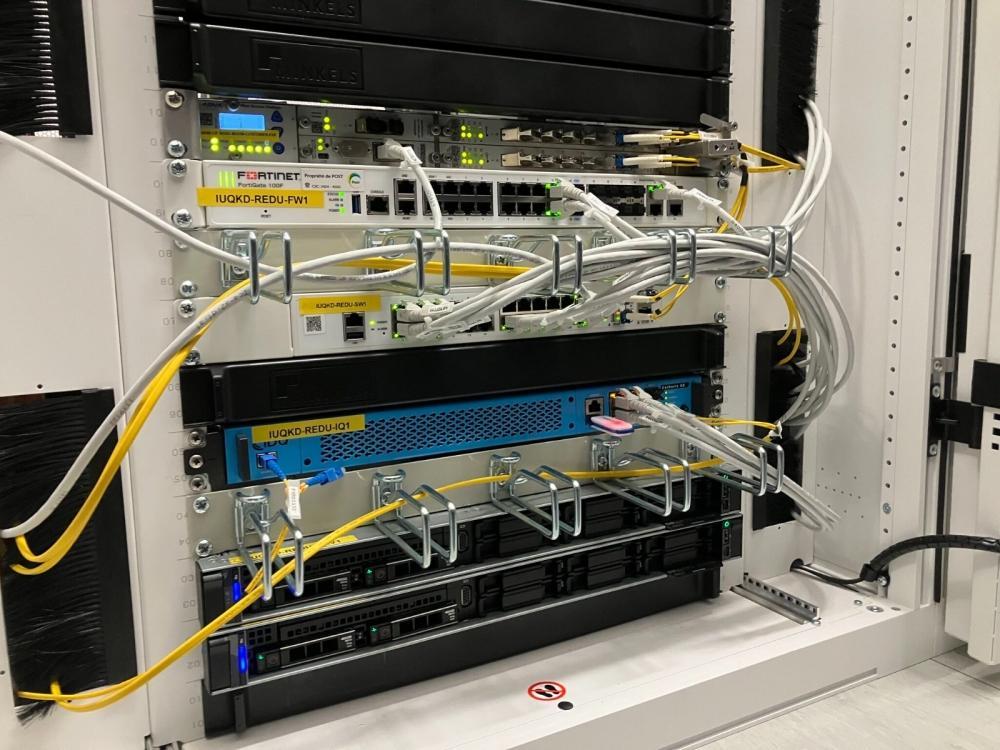Africa-Press – Rwanda. Rwanda is establishing a national data sharing platform, a project expected to be fully operational by 2026.
The initiative, developed under the Ministry of ICT and Innovation and implemented by the Rwanda Information Society Authority (RISA), is set to redefine how institutions exchange and use data, opening doors to efficiency, innovation, and trust in digital services.
Roger Mizero, the Chief Technology Officer at RISA, told The New Times that the implementation strategy has been designed with precision to ensure both speed and sustainability.
“We plan to onboard an experienced firm with a proven track record in data exchange infrastructure and platforms, and pair them with our internal technical experts. This ensures knowledge transfer, ownership, and that the implementation aligns with Rwanda’s needs,” Mizero said.
He noted that the project will be executed in phases, each building upon the other, to make the ambitious 2025–2026 timeline achievable.
The phases begin with requirements analysis and design, followed by the delivery, setup, and configuration of equipment.
The development of the core platform will then take place, integrating with pilot systems and AI-driven use cases.
Mizero added that the final stages will focus on training, capacity building, and handover, ensuring that the system is not only operational but also sustainable.
“With this phased approach, and given our timelines and resourcing plan, we believe it is realistic to launch a fully operational portal by 2026,” Mizero said.
He explained that technical and operational requirements form the backbone of the project and high-performance computing and storage infrastructure will be deployed, using on-premises or hybrid cloud models to ensure flexibility.
“The platform will be built on robust interoperability standards, including Application Programming Interfaces (APIs), metadata structures, and standardized data formats,” he stated.
A strong governance framework will be embedded to define roles, access controls, and compliance processes, while a skilled workforce trained in data engineering, security, and platform administration will anchor its sustainability.
Mizero added that the capacity for continuous monitoring, improvement, and maintenance will be built into the system from day one.
On the financial side, Mizero confirmed that the government has allocated a budget for both the creation and long-term maintenance of the DSP.
“Based on our initial market survey and technical scoping, we are confident that the budget allocated is adequate for both the creation and sustainable maintenance of the DSP. While exact figures cannot be disclosed at this stage, provisions have been made to ensure long-term viability,” he said.
The rationale for this project lies in the fragmented state of data management today.
He noted that government institutions often work in silos, with datasets scattered and disconnected, making it difficult to deliver integrated services or conduct comprehensive analysis.
“Data sharing enables institutions to break down silos, reduce duplication, and provide citizens with seamless services,” Mizero explained.
Through the platform, government agencies and private actors will be able to collaborate more effectively, generate insights from multiple sources, and deliver evidence-based policies and services.
“The result will be greater efficiency, stronger trust, and more room for innovation,” he added.
One of the most significant steps forward came on May 26, when the Cabinet officially approved the National Data Sharing Policy, which lays out the framework for data exchange across public institutions.
The policy is designed to unify and standardize how institutions handle data, ensuring interoperability while embedding strong privacy and protection measures.
The policy will make it possible to combine demographic, agricultural, and transport datasets to improve urban planning and food security strategies.
It sets boundaries to guarantee that only anonymized or non-sensitive data is shared openly, while sensitive datasets can be accessed under clear governance protocols.
“Privacy and security are at the heart of the data sharing platform design,” Mizero said. “Institutions will retain ownership of their data while sharing it through governed agreements, guided by Rwanda’s data protection law and international best practices.”
The platform could also open doors for academic research and private-sector innovation.
By providing clarity in data governance and exchange, the platform will make cross-sector collaboration more transparent and impactful.
RISA, as the custodian of Rwanda’s national digital systems and standards, will play a central role in supporting institutions to implement the policy and align with national digital transformation goals.
Mizero explained the platform will rely on cloud and hybrid infrastructure for scalability, strong encryption protocols to secure data in transit and at rest, mechanisms to guarantee reliability, and role-based identity management to safeguard access.
“Open-source technologies will be leveraged to keep costs manageable and encourage innovation. Blockchain will be explored in areas such as audit trails or data provenance, depending on its feasibility and value,” he added.
AI and automation not afterthoughts
Mizero explained how AI will streamline workflows, from automating data request approvals to metadata tagging and anomaly detection.
This will improve efficiency while strengthening security and enhancing data quality.
An example of one of the use cases is data-driven workforce development and education alignment, he said.
“Its purpose is to align educational programs with labor market demands by leveraging integrated data to analyze workforce trends and forecast future needs. This initiative aims to enhance curriculum design and training programs, ensuring a skilled and adaptable workforce,” he said.
He added that the effective use of the platform will contribute to Rwanda’s Vision 2050 targets.
By ensuring secure, efficient, and transparent data flows, it will operationalize the country’s commitment to data-driven governance, strengthen digital public infrastructure, and position Rwanda as a knowledge-based economy.
“This initiative is about more than technology; it is about creating a foundation for innovation, trust, and citizen-centered digital services,” Mizero said.
For More News And Analysis About Rwanda Follow Africa-Press






